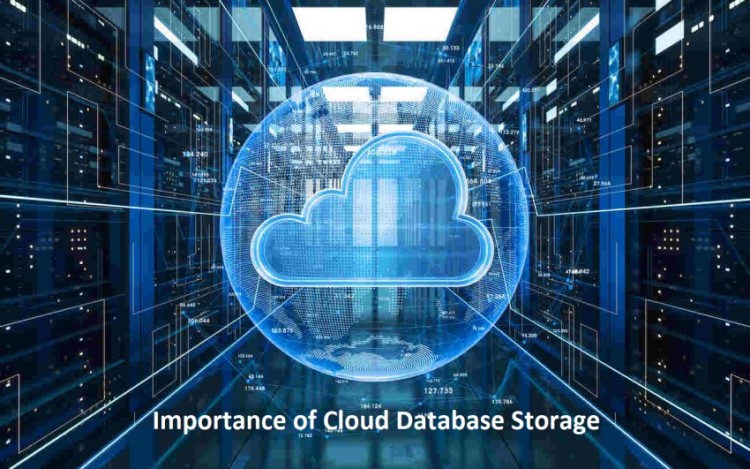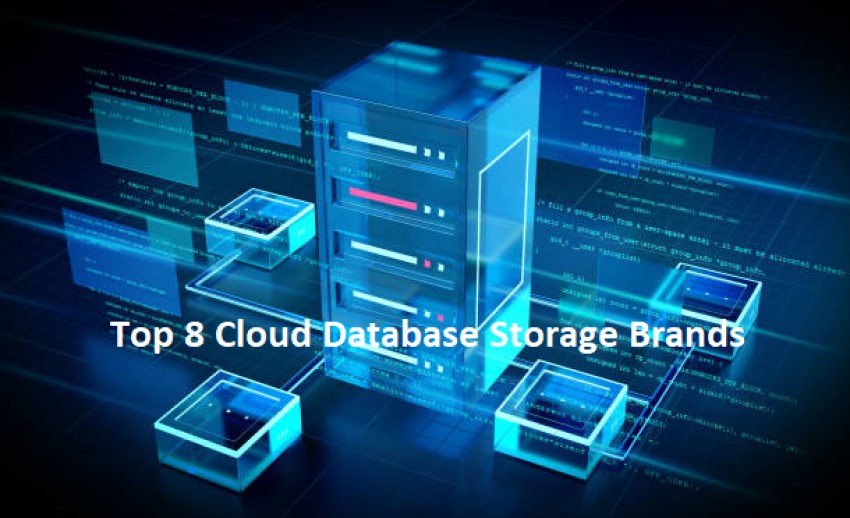Distance Converter
In today’s digital age, organizations generate an enormous amount of data that needs to be stored, managed, and accessed efficiently. Traditional on-premises databases have limitations in terms of scalability, availability, and flexibility, making cloud database storage an increasingly popular option. In this article, acameramen will discuss the importance of cloud database storage and its benefits over on-premises databases.
Importance of Cloud Database Storage
Cloud database storage refers to the storage of data in remote cloud servers maintained by third-party providers. It allows organizations to store and access their data through the internet, eliminating the need for on-premises infrastructure and maintenance. There are several benefits to using cloud database storage, which we will discuss in detail below.
Scalability
One of the primary advantages of cloud database storage is its scalability. Organizations can easily scale up or down their storage capacity according to their needs, without having to worry about purchasing additional hardware or software licenses. Cloud providers offer a range of storage options, from a few gigabytes to petabytes of data, making it easy for organizations to manage their data growth. This scalability ensures that organizations have the storage capacity they need, without overprovisioning or overspending on hardware or software licenses.
Availability
Cloud database storage offers high availability, ensuring that organizations can access their data at any time from anywhere. Cloud providers typically offer multiple data centers in different regions, ensuring that data is available even in the event of a disaster or outage. This level of availability is crucial for organizations that need to ensure their applications and services are always available to their customers.
Security
Cloud database storage providers invest heavily in security measures to protect their customers’ data. This includes measures such as data encryption, access controls, and intrusion detection systems. Cloud providers also adhere to industry-standard security and compliance regulations, ensuring that customer data is protected at all times. This level of security can be difficult and expensive to achieve with on-premises databases, making cloud database storage an attractive option for organizations that need to protect sensitive data.
Flexibility
Cloud database storage offers a high degree of flexibility, allowing organizations to choose the type of database they need based on their specific requirements. Cloud providers offer a range of database options, including SQL, NoSQL, and graph databases, allowing organizations to choose the best fit for their applications. This flexibility ensures that organizations have the right tools for the job and can adapt quickly to changing business needs.
Cost-effectiveness
Cloud database storage can be a cost-effective option for organizations, especially those that have variable data storage needs. Cloud providers offer pay-as-you-go pricing models, allowing organizations to pay only for the storage they use. This eliminates the need for upfront hardware and software investments and can help organizations save money in the long run. Additionally, cloud providers handle maintenance, upgrades, and backups, reducing the burden on in-house IT staff.

Top 8 Cloud Database Storage Brands
1. Amazon Web Services (AWS)
Amazon Web Services (AWS) is one of the top 8 cloud database storage brands. It is widely recognized as one of the leading cloud providers, offering a comprehensive suite of cloud services that include database storage solutions.
AWS has been a leader in the cloud computing industry for over a decade, with a wide range of services that cater to different business needs. Its database storage solutions are highly scalable, reliable, and flexible, making it a popular choice for businesses of all sizes and industries.
AWS offers various database storage options that cater to different types of workloads and data requirements, including both relational and non-relational databases. Its database services are fully managed, meaning that customers do not need to worry about managing the infrastructure or performing routine maintenance tasks.
In addition to its database storage solutions, AWS offers various additional services, such as machine learning, analytics, and security, that can be integrated with its database services to provide comprehensive solutions for businesses.
2. Google Cloud Platform (GCP)
Google provides a cloud processing platform called Google Cloud Platform (GCP). Users are able to create, launch, and scale apps, websites, and services using Google’s infrastructure. It’s also one of the best cloud database storage brands.
The platform offers a range of services for computing, storage, networking, and data analytics, as well as tools for machine learning, artificial intelligence, and Internet of Things (IoT) development. With GCP, users can leverage Google’s global network of data centers, which offers high availability and low latency. The platform also provides security features such as encryption, identity and access management, and threat detection.
GCP offers flexible pricing models, including pay-as-you-go and sustained use discounts. Users can also benefit from GCP’s free tier, which offers a range of services at no cost up to a certain usage limit. GCP has a user-friendly interface and provides access to a variety of developer tools and APIs, making it easy for developers to build and deploy applications.
3. Microsoft Azure SQL Database
Microsoft Azure SQL Database is a managed cloud database service offered by Microsoft Azure. It is a fully managed relational database service built for the cloud. The SQL Server database engine is used in the Azure cloud by the managed and intelligent tools in the Azure SQL family.
Azure SQL Database provides high availability, scalability, and backup services as part of its managed database service. With Azure SQL Database, developers can build cloud applications with serverless compute and gain near-real-time insights without affecting performance through Azure Synapse Link for SQL. Additionally, Azure SQL Managed Instance enables users to modernize existing SQL Server applications at scale.
4. IBM Db2 on Cloud
IBM Db2 on Cloud is a fully managed SQL cloud database that offers enterprise workloads with the agility of a cloud database, while also providing security and availability. IBM Cloud provides infrastructure elasticity and superior resource utilization in a multi-tenant or dedicated environment.
The three main storage options available include file, block, and object storage. The paid Flex plan for IBM Db2 on Cloud starts at $189 per month, offering 1 core, 4 GB of random access memory (RAM), and 2 GB of disk storage.

5. MongoDB Atlas
MongoDB Atlas is a multi-cloud database service provided by MongoDB. It offers a unified query API that is natural and easy to work with for any data form. With Atlas, users can build a wide range of application services while keeping their data architecture simple.
The versatility needed to create robust and effective global applications on the cloud providers of the user’s choosing is provided by MongoDB Atlas, which makes deploying and managing databases easier while also giving users more options.
It’s also one of the best cloud database storage brands.
6. Snowflake
Snowflake is a cloud-based data platform that offers a variety of services for data warehousing, data lakes, and data science. It has become one of the top 8 cloud database storage brands due to its ability to eliminate the complexity, cost, and constraints of other solutions.
Some of the benefits of using Snowflake include the ability to analyze all data types, formats, and sources, which makes it a versatile data warehouse that can process large volumes of data. In addition, Snowflake provides a shared database named SNOWFLAKE, which contains metadata and historical usage data about objects in an organization’s accounts. This database is an example of secure data sharing and provides object metadata and usage metrics for an organization.
7. Oracle Cloud
Oracle Cloud is considered to be one of the top cloud database storage brands. Oracle Cloud provides a Database as a Service (DBaaS) solution that allows organizations to contract with a cloud services provider to offer real-time operational, maintenance, administrative, and database management tasks to the end user.
The Oracle Database Service for Microsoft Azure is an Oracle-managed service available in multiple regions worldwide, and it uses the existing OCI-Azure Interconnect to improve performance. In addition, Oracle Database is included in the list of the best cloud databases, alongside other cloud providers such as Microsoft Azure SQL Database, Amazon Relational Database Service, Google Cloud SQL, and IBM Db2 on Cloud.
8. Rackspace
Rackspace Technology, Inc. is a managed cloud computing company based in Windcrest, Texas, USA, with offices in multiple countries and data centers located in Texas, Chicago, Kansas City, Virginia, the United Kingdom, Germany, Australia, and Hong Kong.
The company offers various cloud services, including disaster recovery solutions, database optimization services, and Cloud Databases, which is a standalone, API-based relational database service built on OpenStack® cloud that allows customers to easily provision and manage multiple MySQL database instances. Rackspace Technology also provides Hosted Email services for businesses, and offers SDDC solutions to bridge the gap between private cloud and data centers.
The Coolest Cloud Database Storage With Top 8 Best Brands is a great resource for finding the best cloud storage options. The brands listed are some of the most reliable and popular providers of cloud storage, so you can be sure you’re getting a quality service.